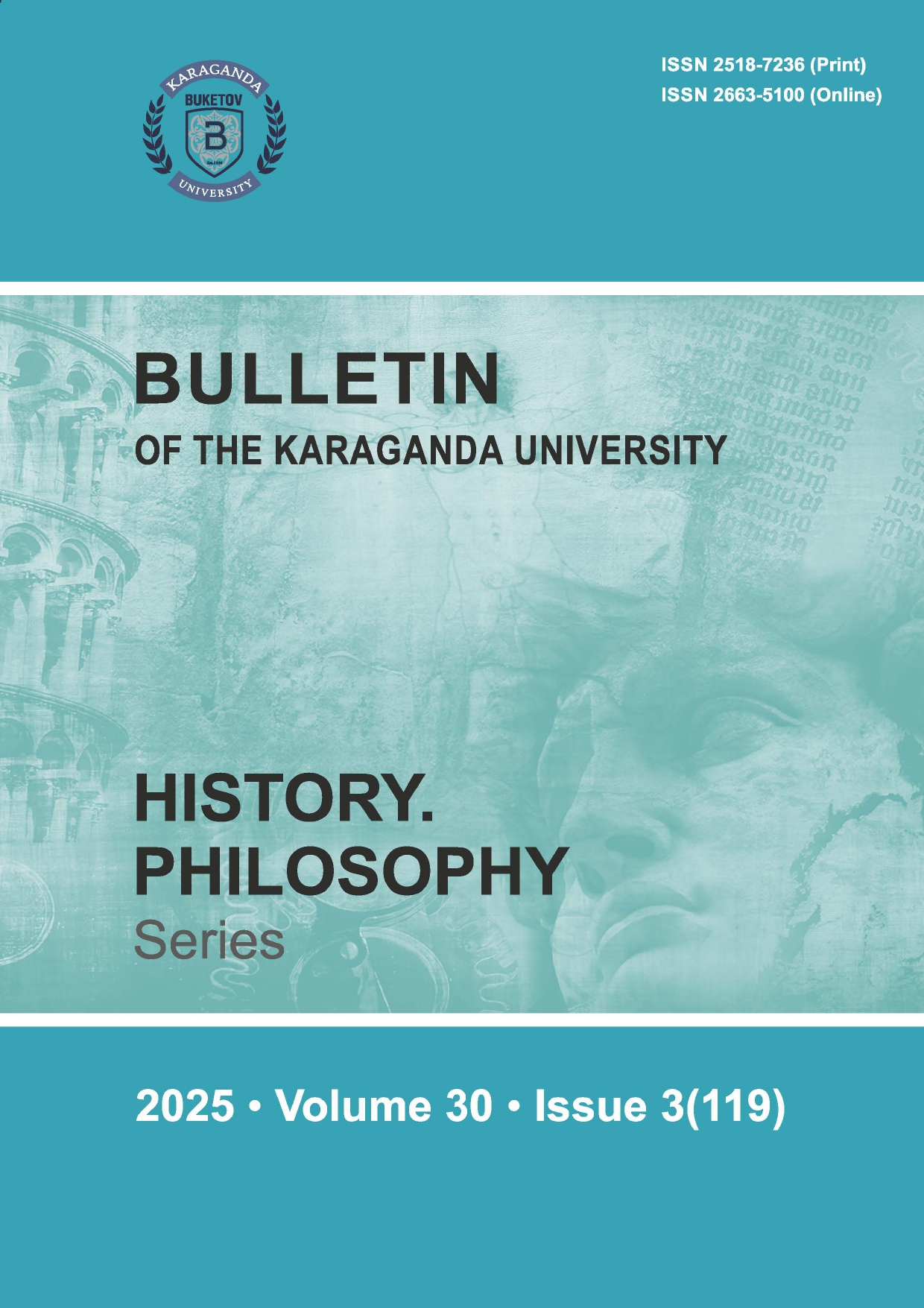The problem of consciousness: cognitive naturalism and mysterianism
DOI:
https://doi.org/10.31489/2025hph3/201-211Keywords:
consciousness, cognitive naturalism, mysterianism, hard problem of consciousness, explanatory gap, neuroscience, evolutionary biology, phenomenal experience, qualia, panpsychism, dualism, information theories of consciousness, eliminativism, neurophenomenologyAbstract
The article explores the philosophical problem of consciousness and discusses the question: “Why doesconsciousness exist?” Two opposing positions are considered cognitive naturalism and New Mysterianism inthe context of contemporary debates on the hard problem of consciousness. The purpose of the study is toclarify the strengths and weaknesses of each approach and to outline ways of their possible reconciliation. Toachieve this goal, I use a set of methods: the analytical method (analysis of key concepts and arguments), thephenomenological method (taking subjective experience as a given), the historical-philosophical method(tracing the development of views from dualism to contemporary theories), the comparative method(comparing the positions of naturalists and mysterians), the critical method (assessing the soundness ofarguments), and the reflexive method (reflecting on the limits of knowledge). The results show that cognitivenaturalism, based on evolutionary biology and neuroscience, offers scientific explanations for the emergenceof consciousness, whereas mysterianism asserts the fundamental unknowability of the phenomenon ofconsciousness to the human intellect. Alternative approaches are discussed (dualism, panpsychism,information theories, eliminativism, phenomenology), as well as recent research efforts aimed at bridging thegap between objective reality and subjective experience. The conclusions indicate that although neither campprovides a final answer to the question of the nature of consciousness, their dialogue contributes to a deeperunderstanding of the problem. Recognizing the complexity of consciousness requires a combination ofempirical optimism and epistemological humility. It is likely that the key to solving the mystery ofconsciousness will require new scientific paradigms that integrate both objective and subjective aspects ofexperience




